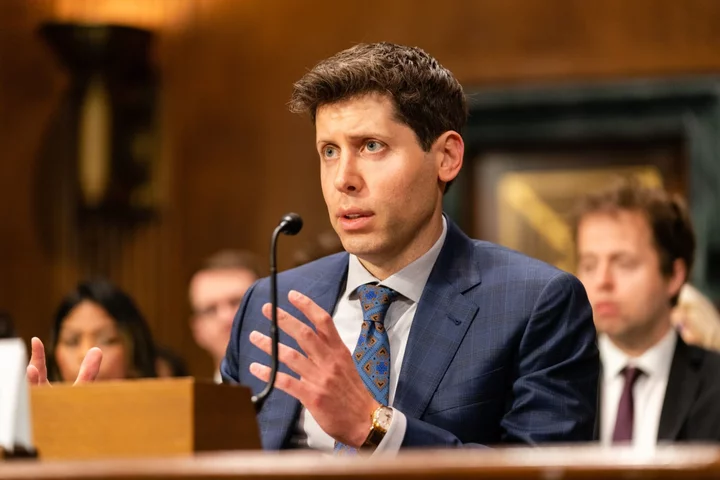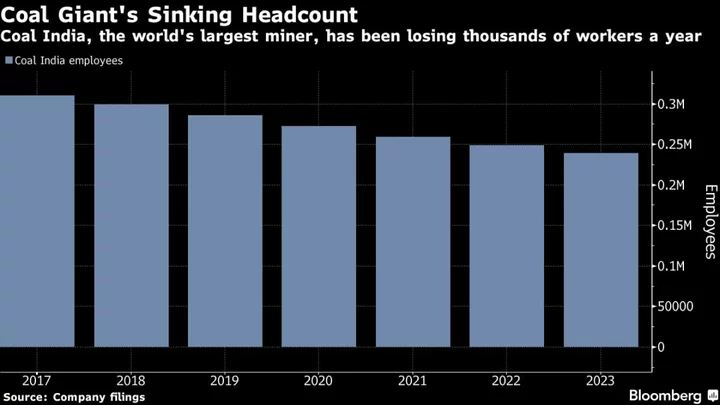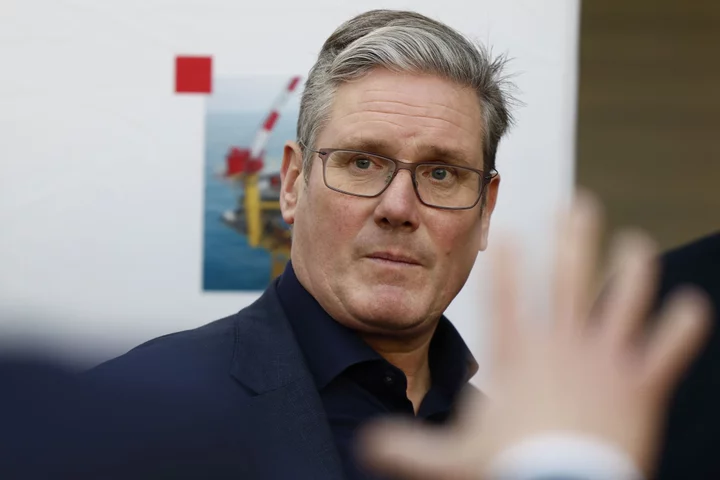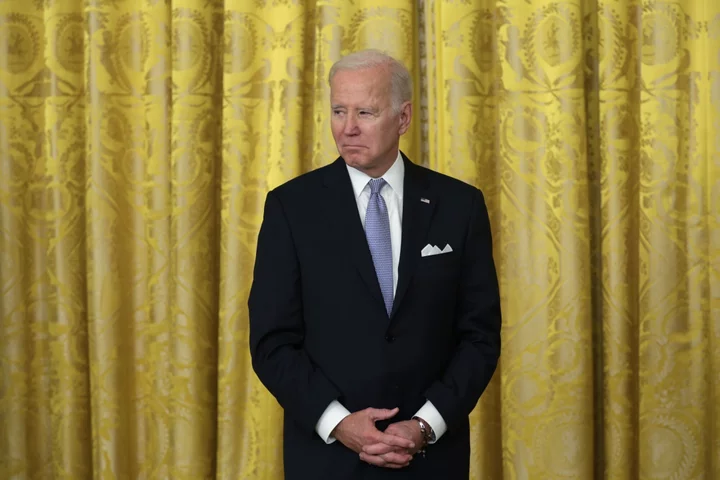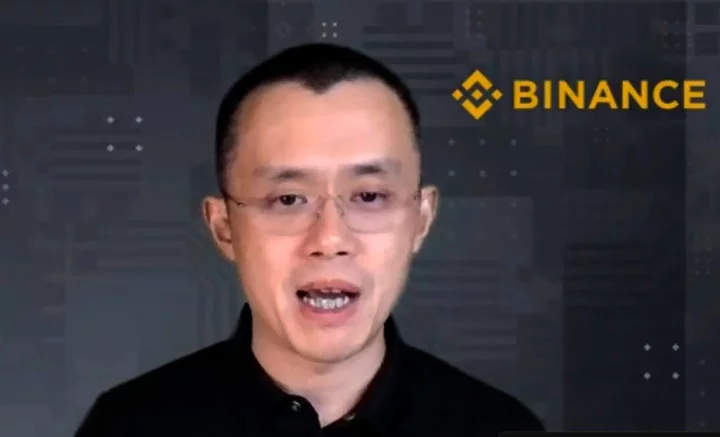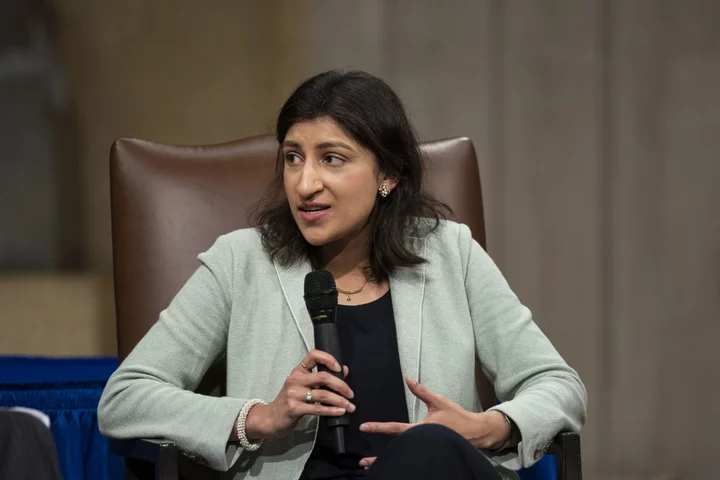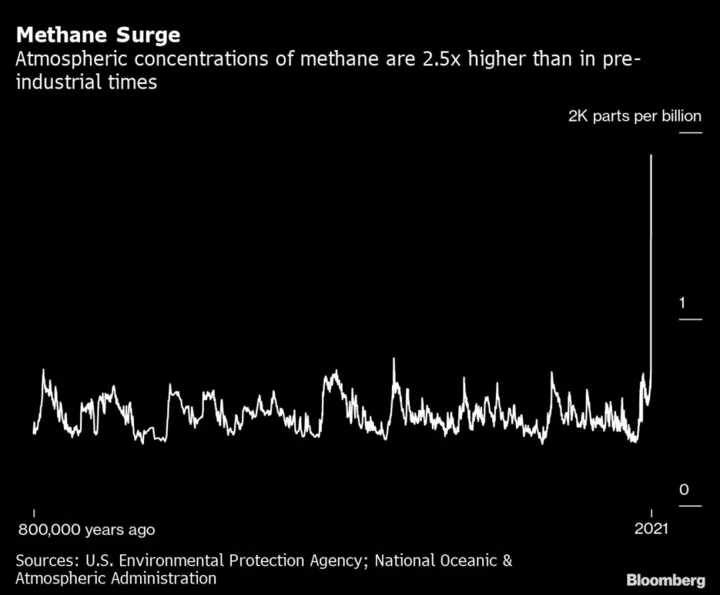The Senate’s first major hearing on artificial intelligence covered everything from the lighthearted marvels of generative AI to dire warnings about existential threats to society and democracy.
Subcommittee Chair Richard Blumenthal opened the hearing with an audio clip that sounded like his voice, but was actually written and composed by AI products. Minnesota Democrat Amy Klobuchar joked with Tennessee Republican Marsha Blackburn about whose state had the best musicians according to ChatGPT.
But not far from the levity was the recognition that this is a moment for technology that could change everything, and that Congress likely won’t move fast enough to set the rules to protect consumers.
The reception for Sam Altman, chief executive officer of ChatGPT developer OpenAI, was warmer and more earnest than the experience on Capitol Hill that greeted other CEOs, from Facebook’s Mark Zuckerberg to TikTok’s Shou Zi Chew. Senators appeared to accept Altman’s warnings that AI could “cause significant harm to the world,” and his plea for some regulatory guardrails for this emerging technology.
Here are the main takeaways:
Regulation Needs
South Carolina Republican Lindsey Graham compared AI technology to a nuclear reactor that requires a license to operate and answers to a regulator. Other senators echoed this point, recognizing that Congress moves too slow to keep up with the pace of innovation, and developing rules for a dynamic industry is best left to a new agency.
“I would form a new agency that licenses any effort above a certain scale of capabilities — and can take that license away and ensure compliance with safety standards,” Altman said. He added that such a US authority could shape the global consensus on AI regulation. That’s possible, Altman said, pointing out that the US designs and controls much of the supply chain for the massive computing power required to run AI applications.
Disinformation & Democracy
Altman warned that artificial intelligence has the ability to supercharge the threat from existing technology to spread disinformation. He cited earlier fears around the introduction of Photoshop, and said the way AI generates images will similarly warp reality — “but on steroids.”
“We are quite concerned with the impact this could have on elections,” Altman said. “This is not social media. This is different. So the response that we need is different.”
There was some discussion of whether companies like OpenAI should halt development of generative AI tools, which can produce content indistinguishable from human speech. But the senators, like the hearing’s witnesses, said pausing innovation in the US would be unwise while competitors like China pursue their own AI innovations.
Altman added that OpenAI isn’t yet pushing forward with the next iteration of its large language model-based tools. “We are not currently training what will be GPT-5,” he said, adding there are no plans to start in the next six months.
Transparency
IBM Corp.’s Chief Privacy and Trust Officer Christina Montgomery, who testified alongside Altman, said transparency should be one of the core tenets of AI regulation, so that users know when they’re not talking to a human.
“Consumers should know when they are interacting with an AI system and whether they have recourse to engage with a real person,” Montgomery said. “No person anywhere should be tricked into interacting with an AI system.”
Montgomery and Altman also agreed that people should have the option to say they don’t want their data to be used to train AI products.
Artist Rights
Blackburn, the Tennessee senator advocating for her state’s famous country music industry, said that her office asked AI tools to write a song in the style of Garth Brooks, and that she was astounded at the results. She pressed Altman on what protections would be available to singers and songwriters. He pledged to work with artists, and emphasized that content creators could benefit from AI tools while maintaining control over their work.
“If we don’t step in, then this gets away from you,” Blackburn warned.
Lost Jobs
Altman said one of his greatest fears is the disruption to the labor market, and called on Congress to help address the impact. Still, he said AI would be good at tasks, not jobs, and has the potential to create many better quality jobs even if some are lost.
“As our quality of life raises and as machines and tools that we create can help us live better lives, the bar raises for what we do,” Altman said. “I’m very optimistic about how great the jobs of the future will be.”
Blumenthal also mentioned displaced workers as “perhaps the biggest nightmare” of AI advancements, and stressed the importance of training workers to learn new skills as part of what he called a “looming new industrial revolution.”

